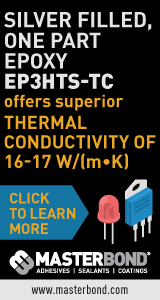Authored By:
Keith Howell, Keith Sweatman, Motonori Miyaoka, Takatoshi Nishimura
Nihon Superior Co., Ltd., Osaka, Japan
Xuan Quy Tran, Stuart McDonald, Kazuhiro Nogita
The University of Queensland, Brisbane, Australia
Summary
While the search continues for replacements for the highmelting-point, high-Pb solders on which the electronics industry has depended for joints that maintain their integrity at high operating temperatures, an investigation has been made into the feasibility of using a hypereutectic Sn-7Cu in this application.
While its solidus temperature remains at 227 degrees C the microstructure, which has been substantially modified by stabilization and grain refining of the primary Cu6Sn5 by microalloying additions of Ni and Al, makes it possible for this alloy to maintain its integrity and adequate strength even after long term exposure to temperatures up to 150 degrees C.
In this paper the results of a study of microstructural evolution during elevated temperature aging and in particular the growth of intermetallics at the interface between Cu and Ni substrates will be reported as well as the results of elevated temperature mechanical testing.
Conclusions
The results reported here indicate that a Sn-7Cu alloy in which the particle size of the primary Cu6Sn5 phase has been refined by an addition of Al appears to have strength at least comparable with that of Sn-95Pb at temperatures up to 220 degrees C. The reduction in strength that occurs as the Cu6Sn5 coarsens suggests that the relatively high strength of the Sn- 7Cu alloy results from the fine dispersion of Cu6Sn5 particles that results from the controlled addition of Al.
Initially Published in the SMTA Proceedings
|




